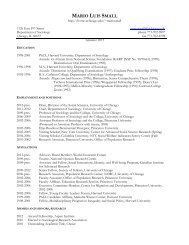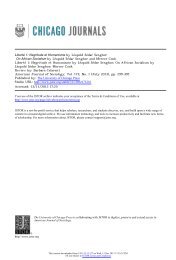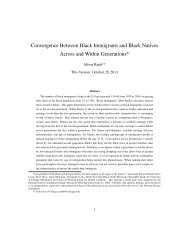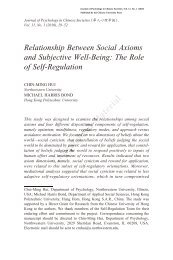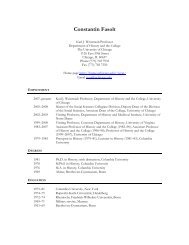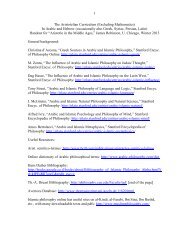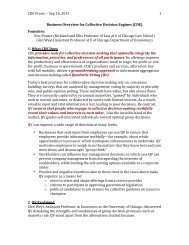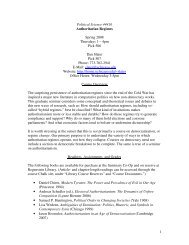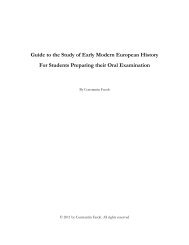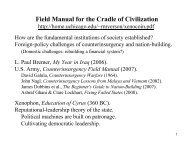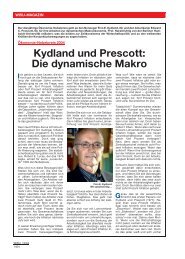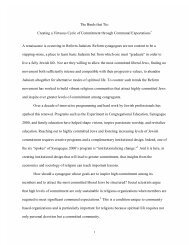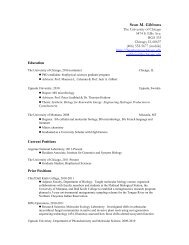Job Market Paper - Personal Web Pages - University of Chicago
Job Market Paper - Personal Web Pages - University of Chicago
Job Market Paper - Personal Web Pages - University of Chicago
You also want an ePaper? Increase the reach of your titles
YUMPU automatically turns print PDFs into web optimized ePapers that Google loves.
Kim: Endogenous Choice <strong>of</strong> a Mediator<br />
In this paper, I assume that a player cannot pay <strong>of</strong>f another player to prevent war. Without this<br />
assumption, the analysis becomes even more complicated, but it would be desirable to relax the<br />
assumption. On another note, if I take the model and raise the pay<strong>of</strong>fs such that choosing the ex<br />
ante efficient mediator becomes more valuable for the weak types; then the choice <strong>of</strong> mediator does<br />
not change, and the outcome actually gives a higher interim pay<strong>of</strong>f for the weak types. But in fact,<br />
the inefficient mediator is chosen by a wider range <strong>of</strong> the probability <strong>of</strong> the strong type. This result<br />
implies that what causes players to more likely move toward an ex ante efficient mediator renders<br />
the “signaling” problem more perverse. Thus, even though players’ types are close to wanting to<br />
have an ex ante efficient outcome in which the world should be a better place; in fact, things get<br />
worse.<br />
Through this paper, I hope to make a contribution to wider applications <strong>of</strong> third party intervention<br />
to explain how and why a third party is chosen inefficiently in various economic, social,<br />
and political interactions. One <strong>of</strong> many applications <strong>of</strong> my model is to international conflict. 28<br />
Mediation, arbitration, and peace talks are thought <strong>of</strong> as optimal international conflict resolution<br />
institutions that attempt to improve the efficiency <strong>of</strong> the negotiation. However, when adversaries<br />
attempt peace negotiations over issues such as territorial boarders or security, they do not always<br />
choose efficient third parties. Although I have focused my application <strong>of</strong> the model to international<br />
relations, the model could apply equally to other forms <strong>of</strong> bargaining games, such as collective<br />
bargaining negotiations between firms and unions in an industrial relations context. In addition,<br />
in an economic setting, the research could look into situations in which two or more firms jointly<br />
bargain over selecting an investment bank to advise them on mergers.<br />
References<br />
Cramton, Peter C. and Thomas R. Palfrey. 1995. “Ratifiable Mechanisms: Learning from Disagreement.”<br />
Games and Economic Behavior 10(2):255–283.<br />
Esö, Péter and James Schummer. 2009. “Credible Deviations from Signaling Equilibria.” International<br />
Journal <strong>of</strong> Game Theory 48(3):411–430.<br />
Farrell, Joseph. 1985. “Communication, Coordination and Nash Equilibrium.” Economics Letters<br />
27(3):209–214.<br />
28 Mediation efforts are a recurrent and potentially important feature <strong>of</strong> international conflict, and international<br />
mediation is an intriguing facet <strong>of</strong> international conflict.<br />
46



